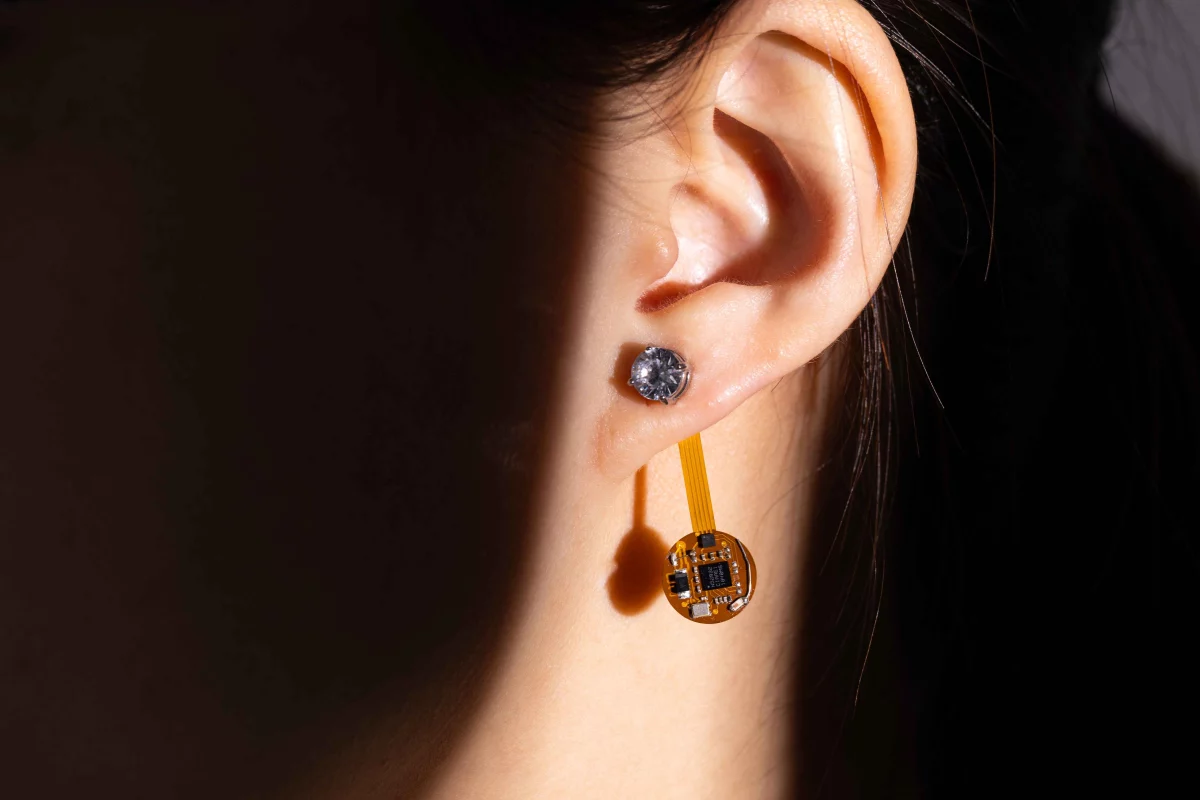If you want to continuously monitor your body temperature, and you already wear earrings all day long, why not just have those earrings do the job? That's the thinking behind the Thermal Earring, which may someday be coming to an ear near you.
Developed by a team of scientists at the University of Washington, the prototype device is "about the size and weight of a small paperclip."
It incorporates two temperature sensors, one of which is magnetically clipped to the earlobe, and the other of which dangles in the open air below. The former sensor measures the temperature of the earlobe, while the latter measures the ambient room temperature as a reference.

Utilizing an integrated antenna and Bluetooth Low Energy module, the device transmits its readings at regular intervals throughout the day, and goes into sleep mode between those transmissions in order to save power. An onboard battery keeps the wearable running for 28 days per charge.
In tests performed on six volunteers, the earring was found to outperform a smartwatch at measuring skin temperature (which correlates to body core temperature) during periods of rest. It also "showed promise" as a means of monitoring stress and ovulation, along with activities such as eating and exercising.

Once developed further, the device may additionally be capable of monitoring the wearer's heart rate and other vital signs. And yes, it can be decorated with resin or gemstones, to make it look more like an actual piece of jewellery.
"Current wearables like Apple Watch and Fitbit have temperature sensors, but they provide only an average temperature for the day, and their temperature readings from wrists and hands are too noisy to track ovulation," said Shirley (Qiuyue) Xue, who led the study along with Yujia (Nancy) Liu. "So we wanted to explore unique applications for the earring, especially applications that might be attractive to women and anyone who cares about fashion."
A paper on the research was recently published in the journal Proceedings of the ACM on Interactive, Mobile, Wearable and Ubiquitous Technologies.
Source: University of Washington






